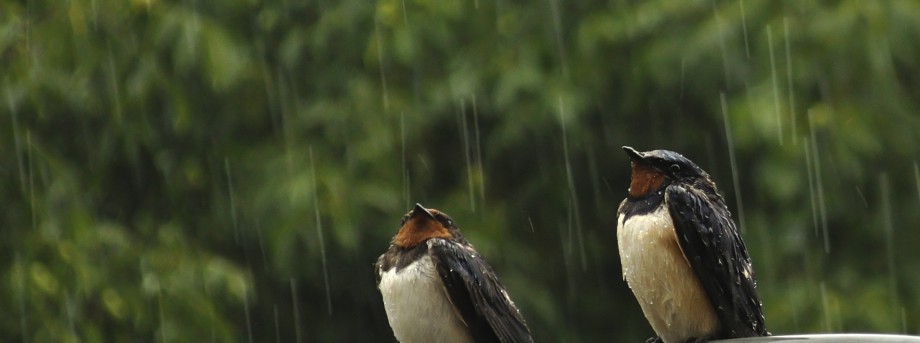The University of Nottingham
 Exchange online
Exchange online
Research Exchange
Research proves two heads are better than one

Evolution is more likely to favour parents staying together if they provide different types of care for their young, according to a new study led by a scientist at The University of Nottingham.
The new study ‘Social role specialisation promotes cooperation between parents’ shows that splitting the care of an offspring between two parents into specific tasks, like incubation and feeding, creates an evolutionary feedback loop where parents become more specialised and more likely to stay together to care.
Dr Freya Harrison, from the School of Life Sciences at the University jointly led the study with Professor Zoltán Barta from the University of Debrecen, Hungary. Dr Harrison said: “The care of an offspring can be costly to an individual parent — it might make them more vulnerable to predators, or reduce their energy reserves such that they struggle to reproduce again.”
Dr Harrison and her team have now used a computer simulation to show that when this care is split between two cooperative parents, specialisation and a division of the labour evolves, making two parent families more stable.
“Raising offspring generally requires several different types of care, such as feeding, brooding and defence, and males and females often specialise in providing different types of care. For instance in many birds, the female feeds the young and the male builds the nest. Previous models of care have often assumed care is a single activity and that the care by a mother can simply be swapped with the care of a father.”
The new study suggests that this assumption is an oversimplification and has led researchers to overestimate how hard it is to evolve biparental care.
Dr Harrison continues: “It stands to reason that once you have this division of labour, everything is more stable, but nobody had previously tested this. By simulating a population of individuals, we were able to programme in their genes and behaviour. We were then able to see how these genes mutated and which were most successful.”
By setting up this particular scenario, the study considers what happens if it is very costly for one individual to carry out two types of care. For example, if a bird is incubating eggs, but has to leave the nest to get food, then it will be unable to defend its nest against predators. It would also have to spend extra energy in re-heating the eggs when it returned. However, if these tasks were split between two parents, e.g. the female incubates while the male provides food, then this would be more beneficial.
Professor Tamas Szekely (University of Bath), one of the co-authors of the study, said: “This is an immensely important study that shows for the first time that complementarity between males and females can maintain pairbonds. Our new model has implications for a wide variety of situations including pairbonds, parental care and family life in humans and animals. Behavioural scientists should now investigate whether the models’ predictions hold up in wild populations as well as in human societies.”
Leave a Reply
Other

Top prize for quantum physicist
A University of Nottingham physicist has won a prestigious medal from the Institute of Physics for […]

Zero carbon HOUSE designed and built by students comes home
Design and construct a low cost, zero carbon, family starter home, transport it to Spain, build […]